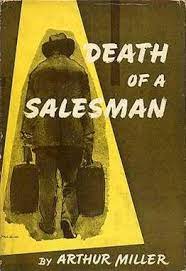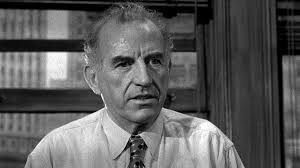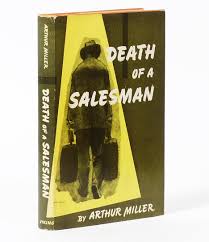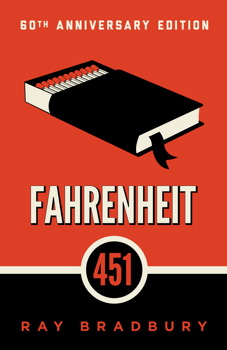
Arthur Miller’s Death of a Salesman is an exceptionally written modern tragedy that explores the concept of the “American dream” and how it can break people and families with its elusive nature yet simple definition. This leads to the shattering of the Loman family and their relationships. None of them any the wiser on their ways, except Biff, who experiences significant character development in acknowledging his and his father’s errors.
Willy Loman attempts to get ahead by focusing on popularity, which is very important in the world of capitalism, although he falls short in terms of knowledge, which ultimately causes him to fail. In attempting to set his sons on the course of success, he instills a similar narrow-minded focus on popularity, delusions refusing to allow him to acknowledge his shortcomings: “Oh, I’ll knock ‘em dead next week. I’ll go to Hartford. I’m very well liked in Hartford. You know, the trouble is, Linda, people don’t seem to take to me” (Miller 89).
His aforementioned children, Happy and Biff, both born into the middle-low class with their parents, have immense potential, but there lies an equally immense, deep rooted conflict in the family, especially between Biff and Willy. Biff, in addition to discovering his fathers infidelity as a child, resents his father’s delusions of grandeur and teachings, as he knows that success is more complicated than the one-dimensional goal Willy believes.
Happy, more faithful to his father to a fault, wishes to fulfill his father’s dreams of success. He acknowledges his father’s delusions, but still is a personification of Willy’s sense of importance, servitude and the lie of the American dream. He shares Willy’s self-delusion and in the end, proves that he has been fully indoctrinated into the American lie by his father, determined to succeed only through popularity and boastfulness. “Sometimes I want to just rip my clothes off and box that goddam merchandise manager. I can out-box, outrun, and outlift anybody in that store, and I have to take orders from those common, petty sons-of-bitches till I can’t stand it any more” (Miller, 15). He consistently boasts his position and his superiority to others akin to his father, although in a more exaggerated manner
Biff is the more poetic, and stable aspects of Willy and Happy, he seeks out and accepts the truth of life, matured from having his perception of his father shattered, he is capable of accepting the miserable nature of their situation, and comes to terms with it. He is sad yet somewhat freed by Willy’s death, no longer burdened by his grandiose standards, finally free to do what he wants: “What am I doing in an office, making a contemptuous, begging fool of myself, when all I want is out there, waiting for me the minute I say I know who I am!” (Miller, 98). Due to his maturity and ability to accept reality for what it is, it is implied he will find success by going out west to work with his hands.
Ultimately, Death of a Salesman is a tragic tale with complex characters, and uneasy conclusions. It highlights the downfalls of the lie of the American dream and how it can break someone down. These lessons can be carried to the modern world as well, lessons as relevant today as when Miller wrote the play 75 years ago.


































